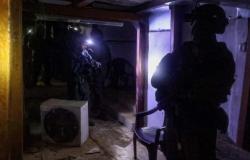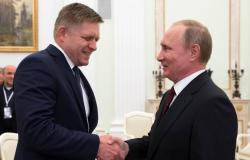She conducted interviews with Hitler and Trotsky, wrote reports on the creation of the state of Israel… One of the most famous American journalists of the 20th century, Dorothy Thompson (1893-1961), had a unique relationship with Czechoslovakia.
She personally met presidents TG Masaryk and Edvard Beneš, writer Karel Čapek, and had a close relationship with Foreign Minister Jan Masaryk. And her third husband was a native, the painter Max Kopf.
She was born in the summer of 1893 in the city of Lancaster, New York, with a population of several thousand, as the daughter of a Methodist preacher. She made her way through adolescence in Chicago, and it wasn’t until university that she underwent intellectual initiation. She drew considerable attention to herself when she became publicly involved in the women’s suffrage movement in her home state of New York.
A voyage to Europe in 1920 became significant for her. This journey prompted her to go on further reporting expeditions throughout Europe, especially where something was stirring, whether it was small uprisings or incipient revolutions. She offered her articles to American newspapers. She had the requisite reporter’s luck and audacity. For example, she exclusively interviewed the last Austrian emperor, Karl I., when she got into his residence disguised as a Red Cross nurse.
Photo: CTK
Dorothy Thompson pictured in 1928
It was then that her principles of journalistic work were formed – to set no limit in advance for the time and effort invested in a story; not consider any person involved or detail insignificant in the search; not to overlook intuition while avoiding factual errors. From her radio reports, which can be heard today in the sound archives of American radio stations NBC, her voice stands out as very gentle, engaging, yet decisive and straightforward. In addition to her self-discipline, she also possessed a certain charisma, including feminine charms and a smiling face with prominent blue eyes that helped her gain confidence and opened many closed doors.
Hitler – a creature without bones
She soon began to focus on the geopolitical problems of Central Europe, mastered the German language perfectly, and gradually became the Vienna correspondent of the Philadelphia Public Ledger and The New York Evening Post. Moreover, her marriage (in 1921) to Josef Bard, a Hungarian writer, gave her new insights into the Central European mentality. She gradually becomes a top journalist with an extraordinary range of friends and acquaintances.
During her stay in Vienna and Berlin, she became friends with Stefan Zweig and conducted a number of interviews with important personalities – Sigmund Freud, Richard Strauss, Empress Zita, Thomas Mann, Bertold Brecht. At that time, she also traveled to Prague to report, met Jan Masaryk and had the opportunity to speak with his father, the president of TG Masaryk. She later wrote of him: “He had the mind of a scholar, the figure of an athlete, the manners of an aristocrat, the status of a king. But he had the heart of a democrat.” She maintained contacts with Jan Masaryk until his tragic death.
From Vienna, Dorothy moved to where it was hot – to Berlin. In the 1930s, as a direct witness of the rise of Nazism, she herself realized that “history is happening too quickly for long books to be written about individual events. This time belongs to journalists.”
Her marriage to Josef Bard was in crisis, and when Dorothy went to Russia to report on the tenth anniversary of the Bolshevik Revolution in 1927, she was divorced. From her Russian trip, she managed to write the book New Russia and a number of interviews. While visiting Moscow, she met Leo Trotsky and Georgy Vasilevich Chicherin. It openly described the Bolshevik decimation of religion and the rampages of the all-powerful NKVD secret police. At that time, few people had the opportunity to look into the Soviet and German reality as openly as Thompson.
Sometime around this time in Berlin, at a tea party for the German foreign minister, she was introduced to Sinclair Lewis, an American writer who had been scouring Europe for material for a new novel. They married in May 1928 in London, took a wedding tour of England in a Maringotka and returned across the ocean.
Photo: ČTK/AP
Lewis and Thompson on their honeymoon, May 1928
When their son Michael was born in 1930, Dorothy devoted herself fully to motherhood. But the tensions in German society reached her urgently across the ocean, so she returned to Germany to capture the crumbling Weimar Republic. She had followed Hitler’s rise to power since at least 1923, when she unsuccessfully tried to interview the future dictator after the Beer Hall Putsch.
The second attempt to meet Hitler took place in 1931. Adolf Hitler arrives at Berlin’s Kaiserhof Hotel an hour later than agreed. He is not yet the ruler of Germany, so far he only leads the Nazi party. “When I finally entered Adolf Hitler’s drawing room,” Thompson wrote, “I was convinced that I was about to meet the future German dictator. However, within about fifty seconds, I sobered up from this persistent thought. He is formless, almost expressionless, his appearance is at the same time a caricature, his figure resembles a creature without bones, a cartilaginous creature. He is illogical and agitated, unbalanced and insecure. His eyes are worth mentioning because they had that special shine that is a mark of geniuses, alcoholics and hysterics. The face of an actor, able to change expression in an instant.’
Thompson’s book I Saw Hitler! the German authorities evaluated it as an insult to national honor and expelled the journalist from Germany. At home in the USA, she did not stop worrying about the threatened Czechoslovakia. The day after the signing of the Munich Agreement, she sent a telegram to Prague – the addressee was President Beneš – with a clear offer: “No one can advise whether to fight, but if you are going to fight, and if you can use me in any way in Prague or elsewhere, call me. Dorothy Thompson and Sinclair Lewis New York.’
Indestructible Max and Hamlet Jan
The marriage to Sinclair Lewis eventually broke down and a divorce set both partners free in 1940. For Dorothy Thompson, who, despite her preoccupation with public affairs and the recognition she received, the failure of her second marriage was deeply traumatic. However, she could not stand being alone for long. In 1943, while helping refugees who were looking for a way out of Europe across the Atlantic, she met the painter Maxim Kopf (1892-1958), a Czech artist of Austrian-German origin (her paternal grandmother was Czech). With his shouldered figure, he was more like a boxer, his friends called him “the indestructible Max” – because of his energy, cheerfulness and courage.
Both were in their fifties, they had had adventurous and stormy years behind them, and both longed to get out of the noise of the world into a solid home, into a certain lee. A great love flared up between them that lasted until their last days.

Photo: ČTK/AP
Dorothy with Jan Masaryk at the Czechoslovak Oodill in Britannia, 12 August 1941
The last time Jan Masaryk met Dorothy Thomsonovup in person was during his trip to the USA in November 1947. “I met him at a party,” the American journalist recalled, “I followed him and sat next to him. We started talking about the position of small countries – the way the idea of a free United States of Europe had died and how Europe was simply divided between the great powers. Fellow journalist Walter Duranty asked Masaryk: Why don’t you go to the United Nations, where you are very popular and respected, and tell them your opinion? Jan nodded his head: Yes, someone should. The next morning I impulsively wrote a letter to Jan. I wrote that it reminds me of Hamlet, who sees everything clearly and distinctly, but who cannot make a decision, because every decision always carries with it some terrible evil. One choice can be war with terrible consequences, another decision can mean the end of the freedom of Czechoslovak citizens. I wrote that such is always the dilemma of people of good will, but the letter was above all an expression of unbreakable friendship, sympathy and affection.’
Masaryk’s reply was also preserved: “Dear Dorothy, Your letter is very important to me, more than you can even imagine. I can only quote a Czech war poem from the First World War: You kissed his broken heart. Broken is exaggerated – not broken, but rather crippled. It is true that I am standing between two not very stable chairs. And I’m afraid that I have many such colleagues scattered all over the planet. I’m sure they won’t drag me down the drain without letting out a big squeal. For now I am persona grata to the people of my homeland. It’s very touching how they hold on to me, as if they still expect something from me. How to disappoint them as little as possible? That is a question. Because rebus sic stantibus (note author – assuming things stay as they are), I can’t give them what they deserve so much. I will think about it and do what I can for them. I must return home as soon as possible and at the earliest opportunity show my full support to those who are trying to realize the wonderful Czech tradition against the cynical and well-organized dialectical materialists. I’m holding on for now. I don’t know how long. Somewhere, sometime, I will somehow stand on my hind legs and shout at the great powers: Gentlemen, your hatch is open! But the timing – that’s the problem.’

Photo: Matyáš Folprecht, Law
A series of the newspaper Právo about modern Czechoslovak, Czech and world history
Jan Masaryk thinks about Russia
When Thompson learned of the tragic death of her friend Masaryk on March 10, 1948, she wrote a memorial article in LIVE magazine entitled Jan Masaryk found one answer and with the subtitle: “Trapped and bitterly disillusioned, he accused the Communists with the only weapon he had left – his own life.” . In a very personal text, she also recalled their meeting in London just before the end of the war at the Czechoslovak embassy: “During our conversation, he expressed his belief that we must get along with the Soviets, primarily because we were assigned to their sphere of influence. Anyway, my country is like a small drugstore in the sphere of, say, British imperial chemicals. And the West hasn’t quite converted in protecting us, has it? On the other hand, we are a western country. So Czechoslovakia must work out a synthesis between Russian socialism and Western freedom. I will go with Russia at any cost – that is, with one condition. Socialist economy – good. But if someone tries to take away our freedom – the freedom to think and openly say what you believe in, the right to your own thoughts, your own soul – then Daddy and Mommy will come and tell me: Johnny, that’s not allowed.'”
Dorothy’s husband, the painter Maxim Kopf, died on July 6, 1958. Dorothy then cared for his painting estate and in 1960 advocated for the publication of his representative monograph. At the end of that year, she flew to Portugal to spend the Christmas holidays with her grandchildren and daughter-in-law.
She died of a heart attack on January 30, 1961 in Lisbon’s Hotel Reno. Her last article appeared in the Ladies’ Home Journal shortly after her death. He was about cooking.
Author Miloš Doležal is a poet and writer
Gallery – Dorothy Thompson and Sinclair Lewis

Photo: Profimedia.cz










